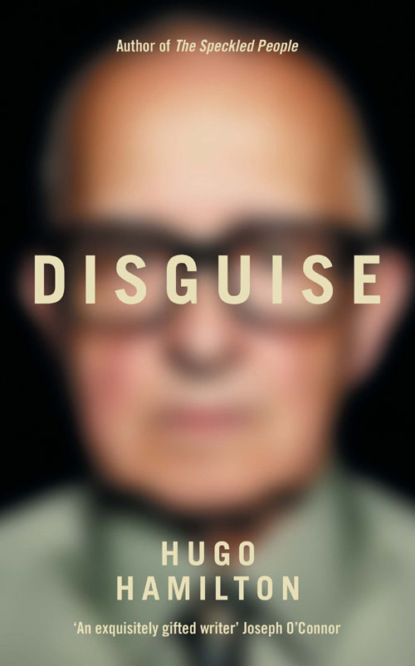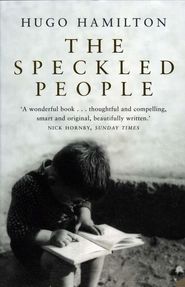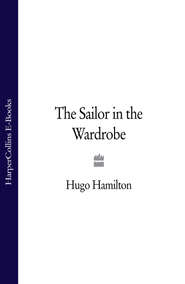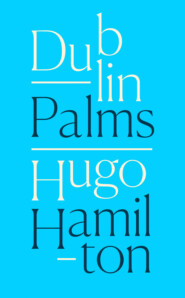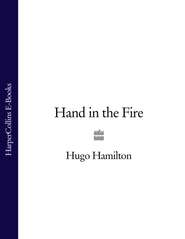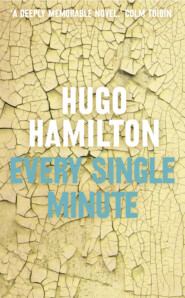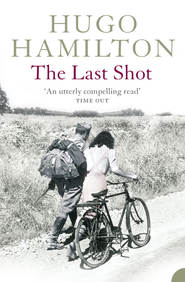По всем вопросам обращайтесь на: info@litportal.ru
(©) 2003-2024.
✖
Disguise
Настройки чтения
Размер шрифта
Высота строк
Поля
He feels the affection of this gathering in the orchard. Mara says she expected more people to come, but they will probably arrive tomorrow. There will be a huge crowd here for Sunday, she says, and maybe it’s good that they have today for themselves, just the family and their close friend Martin.
Everybody is working now in small groups, talking among themselves, telling stories and joking, discussing local events and world events. Some of them bending over, collecting the apples off the ground after the fall of the past few days. Others high on stepladders picking by hand or catching the fruit with nets on long poles. They treat the apples with great care, grasping them with an upward movement, stem and all, so as not to damage next year’s growth. Johannes, the little boy, is advising them, telling them not to mix up the good apples with the bad apples, speaking to everyone with an authority that he has heard in the voices of the adults.
‘Does that make sense to you?’ he asks, and the adults smile at the sound of their language filtered through the child’s mind.
The rotten apples are thrown onto the wheelbarrows. Those with bruises, those with too many black marks and those that appear to be damaged by worms or by wasps go into boxes and buckets to make apple juice. Thorsten maintains that you know that an apple is ripe when you see maggots inside. It seems to be timed by nature to fall at the same point. Some of the apples will be cold-pressed on the farm, but the majority will be pressed in a local factory and sterilised before being put into cartons. At Christmas, they will drink hot apple juice with cinnamon. Some of the pears seem almost comically deformed, but still very good to eat. The cooking apples go into separate boxes along with the bruised apples which will go into making cakes or stewed apple while the perfect, edible ones go into small sacks. Thorsten has got the sacks from friends in the Oder region, not far away on the Polish border. One summer when the river burst its banks and caused great flooding, the army was called out and distributed thousands of sandbags to local people so they could create dykes. Strange that time, seeing the German Army going back across the Oder River into Poland with sandbags. This year, the sacks are being put to even better use for storing apples. Over a dozen of them marked with the letters THW are already lined up at the side of the garden, ready to be carried away and stored inside the farm buildings.
Those on ladders can see out beyond the boundary wall across the fields and over to the lake. On the other side, they can see the small forest two hundred metres away where the Russians hid when the farm became the front line. They can imagine the shots being fired across the field between the farm and the forest. There is a car driving along the road, clinging on to the edge of the horizon, and above the field, a kestrel hovering. Every now and again, an apple falls to the ground with a bony kind of thud, such as the sound of a hoof on the earth. The discovery of gravity each time. The grass underneath has been cut so that the fallen apples are easier to find. There is a wide rake leaning against a tree. At the centre of the orchard, a small table set up with glasses and a jug of water which catches the sunlight. A white cloth is spread over the jug to stop the insects from landing in it and drowning. There is a general hum in the air of wasps and bees and flies and more silent fruit flies. A robin comes to stand on the handles of the wheelbarrow from time to time. The little mechanical chirp he gives is an imitation of the squeak of a wheelbarrow.
Gregor reaches up for one of the high apples. A small sack attached to a long pole catches the apple after he shakes the branch a little. In the blinding sunshine the apple seems to float in the sky and he is afraid it will miss the sack and fall straight down on him instead. He has to look away into the shadows for a moment to regain his sight. A pleasant sunblindness.
Mara has not changed. She sits on an upturned crate, wearing gardening gloves, in charge of the sorting. Katia beside her, sometimes holding her belly for a moment with a heaving kick inside. Mara is very healthy, except for some trouble with her back from time to time, and a cancer scare some years ago. She’s not one for health updates. Her long, bare suntanned arms reach over to pick more apples from a basket and there is a small, powdery thumbprint bruise midway between her right elbow and the shoulder. She’s wearing a loose white top and a skirt with slightly faded colours. She lifts her skirt to carry a bunch of apples in her lap, showing her legs for a moment. She wears bashed-up tennis shoes on her feet, no socks. In the light coming through the trees it would be difficult to say what age she is now. Her hair has flashes of grey, tied up at the back, more wavy.
Martin is standing some distance away, talking to Thorsten. Thorsten is a doctor in the local town and his wife Katia is a schoolteacher. He has inherited this farm from his aunt who fought for it at the end of the Second World War, then had the farm turned over to the state and fought for the right to live there on her own farm during the GDR years, only finally getting possession of the farm back again in her eighties at the end of the Communist years. Then she passed it on to Thorsten because she was too old to live alone.
Gregor is talking to Johannes. He asks the boy what he would like most at this moment in time. Johannes thinks for a while with his hand on his chin and says he would like an elephant to come into the orchard. Gregor agrees this would be wonderful.
‘I would like an elephant to come into the orchard, too,’ Gregor replies to the boy, ‘and an orchestra behind it.’
Johannes goes around asking everybody else in turn, what they would like best. An idle conversation in which the adults have been turned into children. His father wants a group of elves to come and pick all the apples overnight and put them into the store and turn them into apple juice, but that seems not to be so far from reality. Martin says that his greatest wish at that very moment would be to see an enormous chocolate cake appear on a table with a white tablecloth and a bowl of sweet cream.
‘You’ll just have to wait,’ Mara shouts.
‘But I need something sweet,’ Martin says.
Martin has always been able to declare his appetite. He has not changed much either, only become more rounded in a self-assured way, wearing trousers with red braces over his white shirt. He needs to be near food, and it makes Gregor think of his grandfather Emil who also had to be near food at all times. Maybe that’s why they became friends and got on so well in the first place, because Martin in some way replaced his grandfather who went missing when he was very small. Martin is always joking. Always talking about food. And sex. Somebody who is able to keep the conversation going and not talk about serious things always. Mara says he can go a little over the top sometimes. ‘You must have stewed apple coming out your ears,’ he said earlier on. And when he arrived at the farm, kissing everyone and shaking hands, he leaned down without any shame to listen to Katia’s baby, with his ear right beside her belly. In front of her husband Thorsten, he spoke to the foetus inside, saying, ‘Hello. Everything all right in there?’ Martin gets away with that public intimacy. He’s been married twice before, has two children. Now he’s living with a young woman from Croatia, though she’s at home visiting her parents. He runs a legal practice in Berlin, but he would love to give it all up to concentrate on more enjoyable things, such as taking up a job as a chef. He loves the idea of cooking as a performance.
‘Have you tasted one of these?’ Mara asks, showing him a perfect Grafensteiner.
‘I can’t,’ Martin says. ‘I can only eat shop apples.’
‘Are you crazy?’
‘I’m allergic to organic. All those minced up worms they put into the apple juice.’
‘Look,’ Mara says, holding up a perfect apple. ‘There’s not a single worm in it. It’s the most un-damaged, un-spoiled, yet un-eaten piece of fruit ever created.’
‘No thanks,’ Martin replies. ‘I can’t eat anything that has not been made safe through commerce.’
As a student living in the commune in Berlin, Martin used to sit down at night with a wooden board, the way people sometimes eat cheese and crackers. He would smoke a joint and then set about cutting up an apple and a bar of chocolate, systematically. It would take ages, while they were listening to music. It was done with relentless technique, resembling an assembly line, cutting everything up first with great care into a series of apple boats and chocolate triangles the way his own mother used to do it for him, then sitting back to look at the arrangement for a moment like a child before he would begin to eat.
Everyone begins to reveal their own chocolate confessions and Thorsten says Katia hides chocolate all around the farm, the same way that alcoholics hide schnapps. A premeditated vice. Every now and again he finds one of the secret places where she has stashed her supplies, and still there are more, he’s certain of that.
‘You never put on any weight, Mara,’ Katia says in a tone of exaggerated envy.
Martin talks about his own ‘limited baggage allowance’. And then, before anyone has noticed anything, Thorsten returns from one of the farmhouses with a bar of Swiss chocolate. They hear the rustle of the silver paper. And the little crack of chocolate breaking off at an angle, never neatly along the squares. Martin is the first to get some, and when Gregor is offered a piece, he declines.
‘He’s never liked chocolate,’ Mara says.
Gregor remembers the black stone offered to him as a child by an American soldier.
When Johannes comes around offering the chocolate, Gregor tells him to give his bit to Martin. Then Johannes asks Mara what her wish is, and she says she would like all the clocks and all the watches in the world to stop, right this minute. She is not wearing a watch herself and neither is Katia beside her, so Johannes runs over to his father to find out what time it is.
‘It’s eleven fifty-five,’ he calls out.
‘Eleven fifty-five,’ Mara says. ‘What’s keeping Daniel?’
Everyone laughs quietly at this sudden urgency in her voice. She smiles at herself. At that moment, her wish seems to be granted. The insects hover. Everyone is motionless. The sunlight floods in through the branches. She is blinded and lifts her hand up to shield her eyes so she can just about see the outline of Gregor stretching up with his long pole into the top branches. Everything in the orchard stands still.
Seven (#ulink_48f19528-7bd4-5317-b3fe-6e2e14340f17)
When Gregor first arrived in Berlin, he was like a void. They said he was a quiet, sensitive sort of person who didn’t talk very much and was interested mostly in music. He was tall and good-looking, and received a lot of sympathy whenever he told people he was an orphan.
‘You’re a bit of a loner, aren’t you?’ the girls would say to him. It was meant as a compliment, of course. The dark horse. The mystery man. They looked into his eyes the way a climber would stare across a mountain range. They attempted to conquer that frontier and laughed, calling him the great unknown. He was the kind of person who might go out for a packet of cigarettes and never come back. He left the bathroom door open as if he was the only person left in the world. He disappeared at a party, without explanation, leaving his coat behind. He never phoned back when somebody left a message.
Because he hardly spoke, they would speak for him, guessing what was inside his head. ‘I know what you’re thinking,’ they would say. They would set multiple-choice questions, all he had to do was nod or shake his head. Entire monologues would be put into his mouth while he remained mute. And when he revealed that he was an orphan, they became even more curious, passing the news around like a tabloid confession, as though they wanted to adopt him all over again. And maybe they envied his story. Maybe they were orphans themselves to some degree, disowning their parents, wishing they had no lineage. The freedom of having no family tree.
He placed all of his feelings into his music. He was able to keep a party going with a guitar, but he always sank into a phase of introspection soon afterwards. He was as thin as he was tall. He could ‘live on nothing’, they used to say.
Martin and Gregor got a job together, working in the warehouse of a publishing house. Martin was studying law and Gregor was attending a course on music composition. In the waiting room of Martin’s legal practice in Berlin, there is a framed poster with the word ‘Wanted’ written over the top. It offers a reward for the return of a small painting of the artist Francis Bacon, which was stolen from an exhibition in Berlin. The portrait was done by Bacon’s friend, Lucian Freud, a fellow artist with whom he had a falling-out later on. It shows Bacon with large lips and large eyes turned down, a sad, vulnerable expression in which he appears to be thinking about the nature of friendship and how it never remains static, always increasing or fading. The painting itself has never been recovered. The poster is like a shrine to friendship.
They both wore beards. They often sat on trolleys, holding philosophical debates to pass the time. They kept nix for each other after a hard night so the other person could sleep it off in the bookshelves with a couple of medical dictionaries for a pillow. Gregor still recalls the subsidised dinners in the canteen, pork and red cabbage and salted potatoes, served in a tin tray with tin foil across the top. He refused to eat pork and had to have a special lunch provided. Now and again one of the employees would make remarks about him. There was a residue of fascism left in the arguments of older men who spoke of ‘back then’, meaning under Hitler. Men who sometimes used Nazi phrases and said weirdos such as Martin and Gregor should be ‘taken away’.
Gregor arrived at work every day with his curly hair and a detective hat on his head. He wore white shoes and a tweed jacket, a full contradiction of styles. Martin was equally noisy in colour and style, with long hair and round glasses, carrying a doctor’s medical bag. Gregor’s beard was very black and he had a bright smile that could disarm people even in the most disastrous circumstances. He was taller than Martin, but he had the habit of hunching over to make up for his height, speaking to people from the side, as though he was uncomfortable with the responsibility that his height gave him and wanted to compensate by giving the impression of being smaller, more crouched, more looked after. Martin had the bigger laugh and could often be heard throughout the warehouse, irritating the hell out of the foreman, while Gregor laughed more in towards himself, a laugh that was shrinking rather than expanding.
Life seemed like one long party at the time, with Gregor playing ‘Riders on the Storm’ like an anthem on his guitar every night. Everything revolved around music and sex and drugs. The genius of youth. All that glorious time-wasting and useless enterprise. Gregor remembers taking acid and staring for five hours at his luminous hands, seeing right through the skin like thin parchment at the veins inside, wondering whose blood flowed through them.
On the autobahn outside Frankfurt one day, he and Martin were hitchhiking back to Berlin in the middle of winter when they were questioned by the police. It was a time of mistrust and tension in Germany. A time of protest making up for a time of lack of protest. A time of street demonstrations and rioting and potential terrorists.
It was getting dark early and they were both frozen to the bone. Gregor wore a cashmere coat, which he had picked up for nothing but which was far too small for him, and his detective hat. Martin wore a thin anorak and tennis shoes, hopping around from one foot to the other. There were dirty bits of hardened ice left at the side of the road from the last snow and the only thing keeping them warm was their beards. They cursed each other for the idea of hitching in winter, particularly when Martin’s father had plenty of money and they could easily have taken the train.
They had a hard time getting a lift. Two eccentric figures, one with his bashed-up doctor’s bag and the other with his guitar case, imagining the dreamy heat inside the cars going by. Motorists staring at them with those vacant, alarmist expressions as they passed by. They waited for like-minded people who might take pity on them and kept an eye out for cars like the one-stroke DCV, or the Renault 4, or the Volkswagen; high-mileage, proletarian vehicles that had become a symbol of new, alternative life. They had almost given up hope when a car suddenly pulled up ahead of them. At last, they said, picking up their bags and running towards it. But they stopped short when two men hopped out of the car and confronted them with handguns and badges.
‘Drop your bags,’ one of the men shouted.
They were ordered to step over the rail into an adjoining field. Within seconds, Gregor and Martin found themselves walking away down a slope with the men shouting orders, pointing guns at their backs. It seemed like such a calm place, with crows in the trees, the autobahn out of sight, like a river in spate behind them, and the winter sky fading to an icy blue.
‘Take off your coats and throw them to the side,’ the policemen demanded.
Martin did as he was told and threw his anorak away.
‘And that stupid fucking hat,’ one of the men bawled at Gregor.
Gregor refused to take off his hat, or his coat.
‘What’s all this about?’ he demanded, turning round towards the policemen.
The policemen directed their weapons at Gregor. He had been turned into a suspect by them, but his refusal took on a moral momentum, contradicting their unspoken accusations. Underneath the hippy clothing, there was a need to assert his identity in public, without any shame, without any doubt. This was the moment for it. He smiled, like a flashlight shining through his black beard, while the officers waved their guns and screamed at him to turn away, using the word ‘asshole’ in every phrase. Gregor then became serious, withdrew his smile and stared straight at the officer, telling him that he was refusing to take off his coat in the middle of winter.





